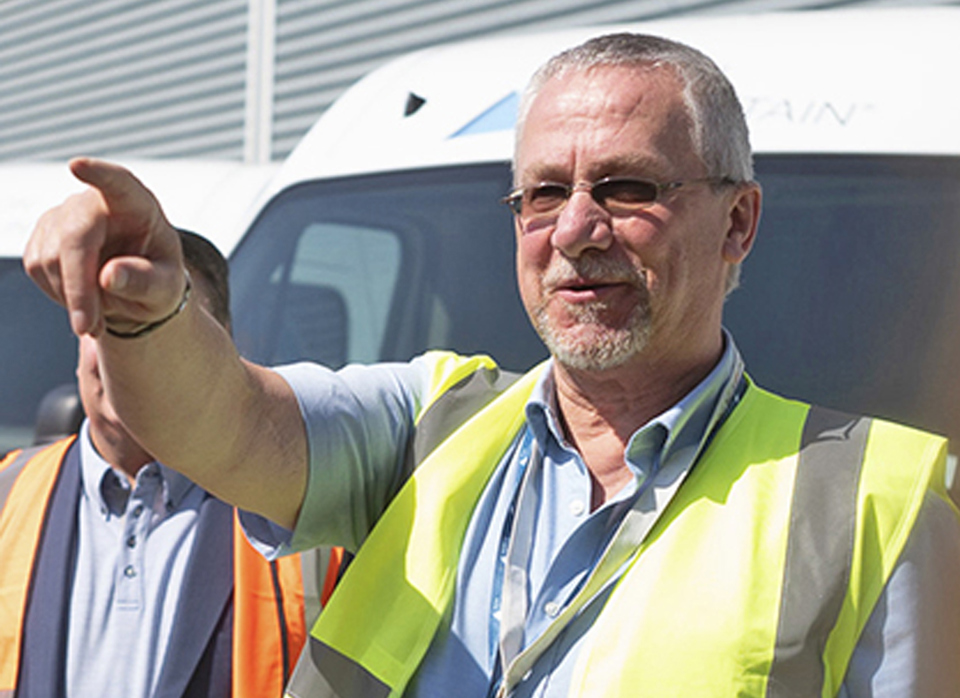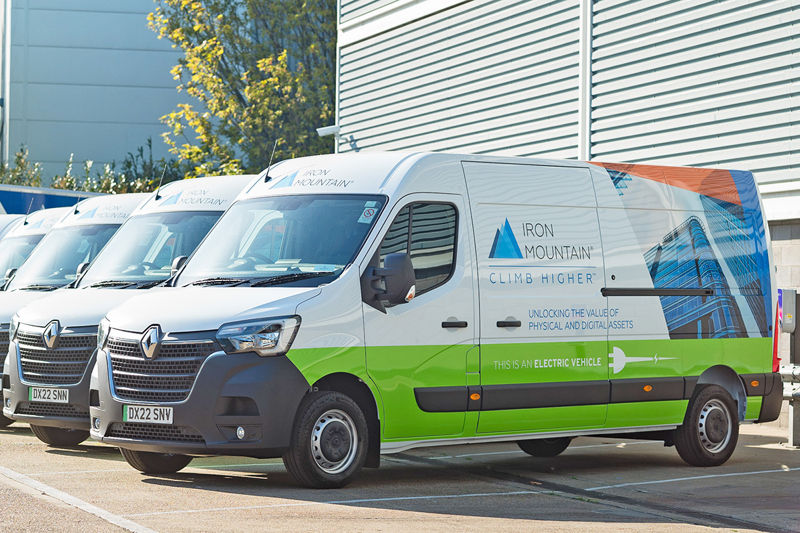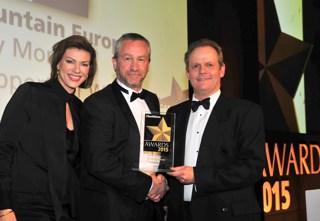For any fleet embarking on electrification, there will be many milestones celebrated along the way.
It could be when the first, or 1,000th, electric vehicle comes on to the fleet or perhaps when the first charger is installed at the workplace car park.
For Iron Mountain – which is no stranger to electrification having put its first electric vehicle onto the fleet a decade ago – it was taking on six Renault Master 3.5-tonne electric vans at its Cody site in east London earlier this year.
Such was the occasion, senior executives from the company’s US base travelled to the UK for a special presentation morning to mark it. The excitement among top execs and the transport team and drivers at the Iron Mountain events was palpable.
Such loyalty and appreciation could be due to the fact that the company considers drivers first when ordering vehicles. They want them to be excited about getting behind the wheel of an electric van. After all, as one exec comments:
“Drivers are the face of Iron Mountain to our customers.”
The company’s main UK sites are in Birmingham, London, Wakefield, Warrington and Livingston in Scotland.
For any fleet embarking on electrification, there will be many milestones celebrated along the way.
It could be when the first, or 1,000th, electric vehicle comes on to the fleet or perhaps when the first charger is installed at the workplace car park.
For Iron Mountain – which is no stranger to electrification having put its first electric vehicle onto the fleet a decade ago – it was taking on six Renault Master 3.5-tonne electric vans at its Cody site in east London earlier this year.
Such was the occasion, senior executives from the company’s US base travelled to the UK for a special presentation morning to mark it. The excitement among top execs and the transport team and drivers at the Iron Mountain events was palpable.
Such loyalty and appreciation could be due to the fact that the company considers drivers first when ordering vehicles. They want them to be excited about getting behind the wheel of an electric van. After all, as one exec comments:
“Drivers are the face of Iron Mountain to our customers.”
The company’s main UK sites are in Birmingham, London, Wakefield, Warrington and Livingston in Scotland.
The official ceremony took place at its London facility, which operates 32 vehicles, a third of which will be electric in the next month or so.
Globally, the company operates a fleet of more than 5,000 cars, vans and lorries and this year it signed up to EV100, an initiative which brings together companies that are committed to accelerating their transition to electric vehicles.
Jane Hardman, senior vice-president of operations for Europe and South Africa (ESA), says: “Iron Mountain has been on a journey to make sure we have a positive impact on our environmental and social responsibility.
“We have signed up to the EV100 commitment to say that by 2030 all of our company cars and 50% of our vans will be electric.
"We’ll make sure that we can help the health of not only our drivers but also of people walking in London and our customers too.”
Hardman says that, globally, Iron Mountain hopes to have 100 electric vehicles fully operational or on order by the end of this year, increasing to 500 by the end of 2025.
Charlie Watt, national transport lead for UK and Ireland, based in Scotland, believes driver buy-in as well as boardroom support is crucial to any successful fleet electrification strategy.
The company operates a reward and recognition system which awards the month’s top 30 drivers with a £50 online voucher for which the criteria includes an economic driving style, no at-blame incidents and zero issues at client premises.
This programme has so far proved cost-neutral with the number of ‘at-blame’ incidents cut dramatically over the year. Company bosses are all too aware that there are many opportunities for drivers to ‘jump ship’ and join one of several other delivery companies.
Watt says: “We’ve had the smaller electric vehicles in London for the past 10 years and we’ve found that drivers are happy to have a new vehicle that’s quiet and clean.
“We try to allocate a vehicle to a driver, so they can treat it like it’s their own. There’s nothing worse for a driver than receiving a vehicle from another driver and it’s not been looked after. To get them over the line with electric vehicles has been fairly easy. Our drivers and their supervisors have really good relationships and there is lots of interaction among them. We have fortnightly huddles and there’s also a daily debrief, so everyone knows what’s going on.
“We trialled different vehicles and the drivers were included in those trials; that was important too.”
On-site charging
The new electric Renault Masters will be matched to regular daily routes that can accommodate their 75-mile range. At the end of each shift, the van will be taken to the depot where it will charge overnight, with part of that charge coming from solar power.
Watt admits that the range offered could be an issue at other sites within the Iron Mountain operation where daily routes are longer. Charging on the go is not a preferred option.
“We want charging done on site and not on streets,” he says. “We’re always looking at what different ranges manufacturers offer.”
Shortly after the presentation, the Cody site was also due to get a further five 3.5-tonne vans delivered, taking the total number to 11.
Rory Morgan, head of transportation, ESA (pictured at start of article), says: “This isn’t a first for us; we had an electric vehicle in Birmingham around 10 years ago.
“It was a step into the unknown and the vehicle had huge batteries and its payload was significantly compromised by the heavy boxes of paper it had to carry.
“We’ve used smaller electric vans before, and they’ve been great. But the workhorse for us in the UK and across Europe is the 3.5-tonne van, with a good payload and cube capacity. We trialled a lot of vehicles, loaded them up, tried them in the cold weather with lights, heater and windscreen wipers on. Only then could we understand their capabilities.”
Morgan adds:
“So why is it significant that Iron Mountain has taken on these six vehicles? It’s the first time with 3.5-tonne vans, so it’s a step forward for us.”
Despite the EVs having a much higher purchase price compared with their diesel-powered equivalents, total cost of ownership (TCO) figures, including fuel savings and the London congestion charge, make them a viable financial option. Iron Mountain leases them on a five-year cycle which gives the optimum TCO.
The company has been quick to head off some potential new dangers it has identified from operating electric vans.
Morgan adds: “The biggest issue we have is their quietness, and people walking out in front of the vehicles, particularly in areas like Canary Wharf and the City, where people are on their phones and use their ears to cross the road, rather than their eyes.
“Our driver training programmes help with this by teaching them how to read the road ahead, and drivers themselves will soon get used to these vehicles and how they behave.
"We use telematics and if data shows us that a driver often brakes hard then we’ll know they’re not reading the road.”
Dominic Phinn, senior policy manager for EV100, spoke at the presentation and told guests: “We are in a climate crisis and it’s depressing. Electric vehicles will play a key role in helping to stop global increases in temperature and protecting people’s health and it’s encouraging to see companies committing and buying these vehicles and putting them on the road.”
Login to continue reading.
This article is premium content. To view, please register for free or sign in to read it.




















Login to comment
Comments
No comments have been made yet.